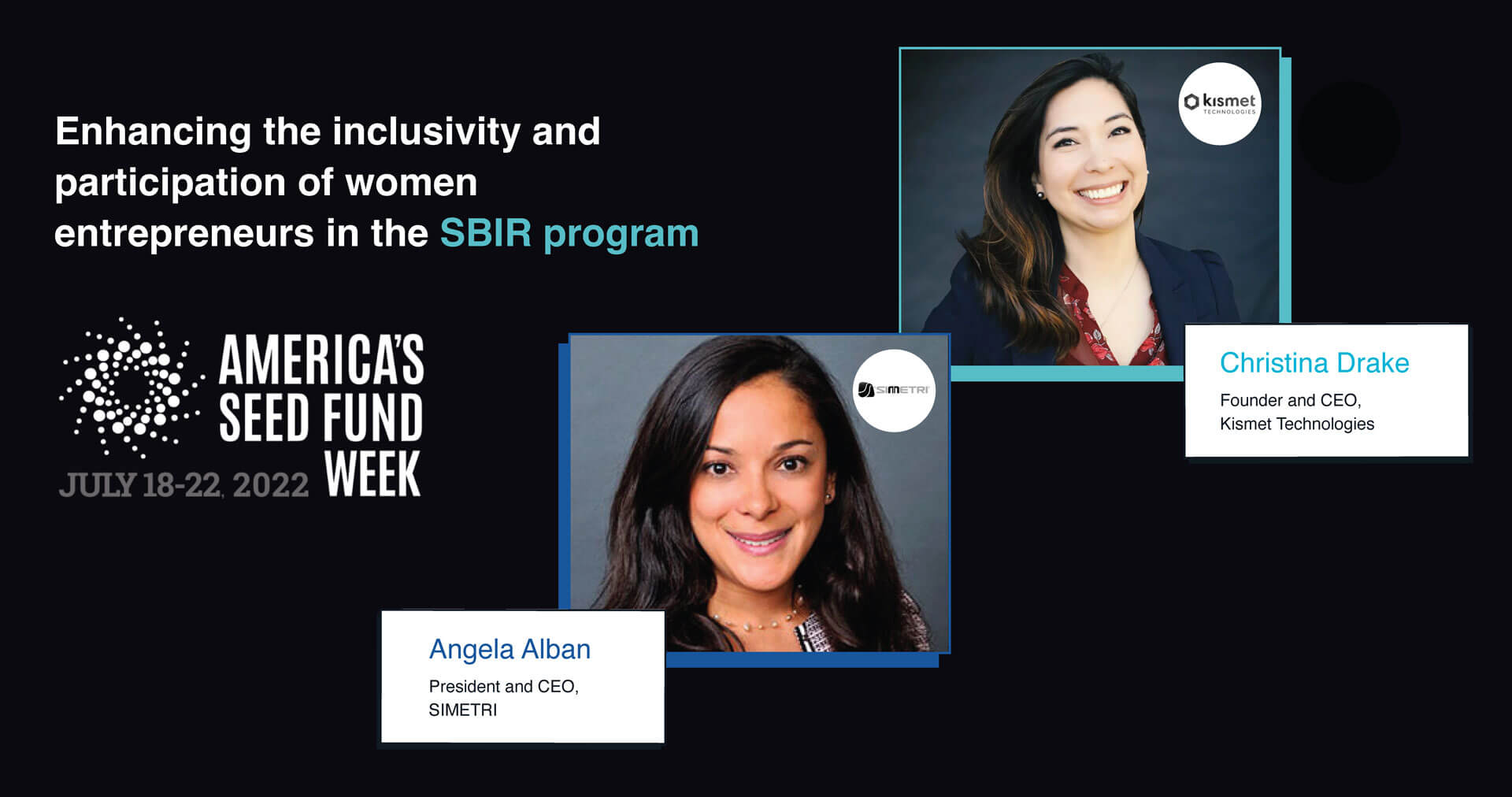Christina Drake, Ph.D., was at the grocery store at the start of the COVID-19 pandemic when she witnessed an employee attempting to disinfect a door handle. Although she wasn’t yet an expert in disinfectants, she knew enough to understand that spraying and immediately wiping off the cleaning solution wasn’t effective.
This sparked the idea for her business, Kismet Technologies, which develops safe nanotechnology innovations to mitigate the spread of harmful pathogens. Its NanoRAD solution is a transparent surface coating that continues to kill bacteria and viruses for months. The speed at which Drake and her team developed the technology is impressive, transforming the idea into a patent-pending invention in just under two years – and funding from the Small Business Innovation Research (SBIR) program made it possible.
“Investors don’t pay for new ideas in your head that cost hundreds of thousands of dollars to just get an initial proof to see if the science even works,” said Drake. “The SBIR program is important because in high tech, high-payoff technology, it gives tech entrepreneurs a way to actually vet whether or not the science is real. It plays a very big role in helping people who are tech innovators get that initial funding to actually do the proof for their potential product.”
Drake secured SBIR funds through the National Science Foundation, which she then leveraged for a matching grant from The Corridor. Collaborating with researchers at the University of Central Florida allowed her to produce compelling scientific results and accelerated her research and development, she said.
This success has motivated Drake to serve as a mentor in The Corridor’s SBIR Catalyst program, which began in September 2021 with a grant from the U.S. Small Business Administration (SBA) to help more women-owned businesses secure SBIR funds. With partners at the University of Central Florida, the University of South Florida, the University of Florida and the Florida Institute of Technology, The Corridor established a network of support organizations, role models and resources to help women-owned businesses develop competitive SBIR grant applications and streamline commercialization pathways for their resulting STEM innovations. The initiative has since supported 15 women-owned businesses in their SBIR journey and has become a nationally recognized model, evidenced by invitations to present at events of the U.S. Small Business Administration, the National Academy of Inventors, the National Society of Black Engineers and Synapse Florida.
It may be surprising to learn that SBIR and Small Business Technology Transfer (STTR) awards are the nation’s largest source of early-stage startup funding for research and development, with $3.7 billion budgeted annually to support the financing of cutting-edge, high-risk technologies. Often referred to as “America’s Seed Fund,” SBIR/STTR are distributed by select government agencies involving research with extramural budgets of $100 million or more.
This year, the SBA is celebrating America’s Seed Fund Week, July 18-22, with a series of virtual events where interested entrepreneurs, inventors and innovators can hear directly from the 11 participating federal agencies that distribute over 7,000 new awards annually. Register now for the virtual event.
Why is The Corridor “all-in” on SBIR? According to Cenfluence program director and SBIR Catalyst facilitator, Amy Beaird, Ph.D., the benefits of this funding source far outweigh any challenges.
“Although the process to apply for SBIR funds can be complex, SBIR provides critical funding for early-stage R&D focused companies to develop a proof of concept and prototype and hire technical staff,” she said. “SBIR funds are non-dilutive, meaning entrepreneurs don’t have to share ownership of their company with investors; you retain the rights to your intellectual property; and, it validates your company as a viable vendor for future opportunities with the government.”
This was true for Angela Alban, president and CEO at SIMETRI, a small business that delivers state-of-the-art medical simulation training products and services, and engineering and professional services. By successfully executing SBIR Phase I and Phase II awards, SIMETRI became recognized by the U.S. Department of Defense as a valuable partner, and it opened the door to new opportunities.
Among the many benefits of SBIR participation, the other one that topped Alban’s list was the chance to build an expert team. Especially for small businesses with limited resources, SBIR funding “allows you to round out your team and create the right solution within a short period of time,” she said. Like Drake, Alban also serves as a role model for the SBIR Catalyst program and leveraged her SBIR funds to secure a matching grant from The Corridor, which kickstarted collaboration with faculty researchers at the University of Central Florida.
“The SBIR is an amazing program,” she said. “I learned about it when I was working for a small business in my past and saw how easy it was to be able to come up with a great idea and to bring that idea into reality, and to bring together a team to do so also.”
To learn more about The Corridor’s SBIR Catalyst program or seek SBIR/STTR application support, please connect with The Corridor.

